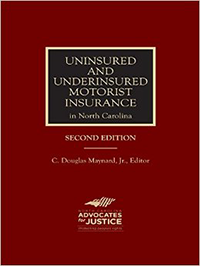In the legal arena, fault determines degrees of liability and the right to fair compensation. In most states, comparative negligence rules apply. In North Carolina and only a few sister states, contributory negligence is the standard. While attempts have failed in the past, the state's lawmakers have drafted a bill to abandon this old standard.
Generally, contributory negligence is a common law rule that bars accident victims from receiving fair compensation for injuries or damages. While negligence relates to careless or inadvertent actions or inaction which cause harm or damage, contributory negligence is a concept that incorporates the "clean hands" philosophy. A person cannot benefit in any way from their own wrongful act and there is no distribution of fault.
However, this year, General Assembly members are challenging the long-standing contributory negligence rule through H.B. 813. Presently, the draft amendment is being considered by the Committee on Rules, Calendar and Operations.
While the contributory negligence standard is a difficult one to overcome, it is not absolute. In cases where an injured person can prove that the defendant in their case had the last clear chance to avoid the car crash or accident and failed to do so, the presumption is also overcome. Also, where a plaintiff can show that the other party's actions, which caused their injury or damage, were willful and wanton, a contributory negligence defense can be defeated.
If successful, this draft amendment would place North Carolina in the majority of other states that offer some type of comparative negligence standard for those injured through the significant negligence of others. Many look at the change as a positive step to protecting the rights of injured people.
The information you obtain at this site is not, nor is it intended to be, legal advice. You should consult an attorney for advice regarding your individual situation. We invite you to contact us and welcome your calls, letters and electronic mail. Contacting us does not create an attorney-client relationship. Please do not send any confidential information to us until such time as an attorney-client relationship has been established.








